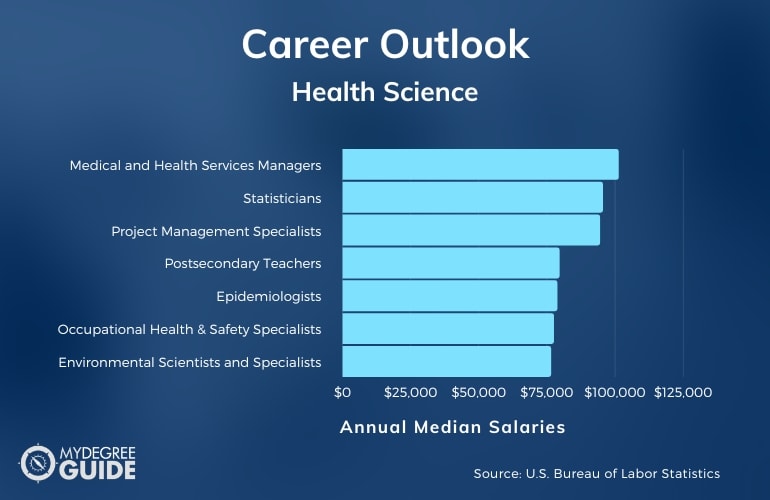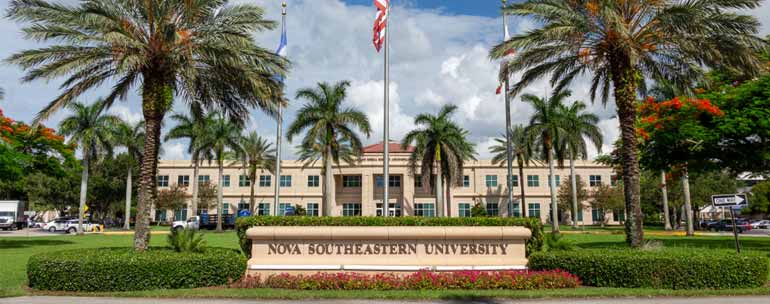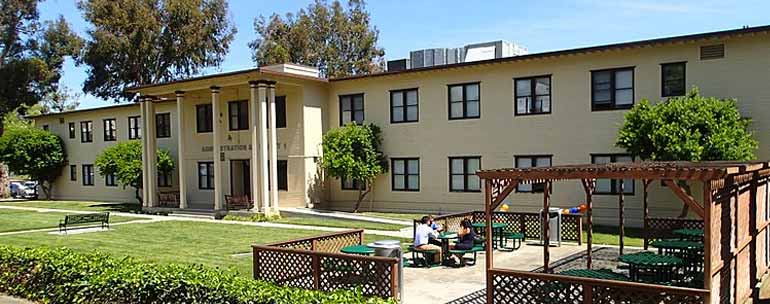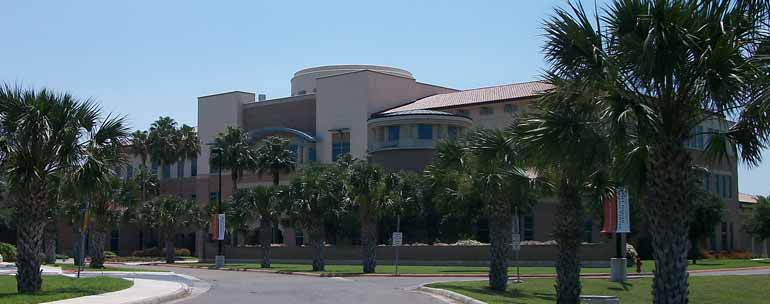A masters in health science can help you prepare for advanced roles in the medical field. It covers a wide array of healthcare subjects so that you can gain a nuanced, broad perspective of the field.

A master degree program in health science aims to make students more employable by helping them develop greater insight into the medical field as a whole.
Editorial Listing ShortCode:
Health science students typically have a passion for helping others as well as the desire to thrive or lead in the healthcare industry.
Masters in Health Science Programs Online

The role of skilled medical professionals is essential to a functioning society. In recent years, the medical industry has seen an influx of demand for healthcare professionals. Graduating with a master’s degree in health science could allow you to advance your knowledge of the healthcare industry and apply your skills to a valuable, in-demand market.
Health sciences master’s programs are intentionally broad so that students can learn essential and versatile skills that allow them to fill advanced positions across the medical field. This flexibility means that graduates can be found in many corners of the healthcare industry, including in clinical and administrative roles.
Editorial Listing ShortCode:
Some graduates choose to go on to medical school or to pursue further education for other clinical roles. Other professionals earn a masters in health science to enter the healthcare field or advance their current healthcare career.
Graduates can often be found working in fields like:
- Clinical research
- Healthcare Administration
- Health education
Health science graduate programs expose you to many subjects. If you were to enter a health sciences program, you could expect to take courses in:
- Epidemiology
- Environmental Health
- Health Administration
- Biostatistics
Health sciences master’s programs also offer a wide range of concentrations. Choosing a specialty track can help you expand your understanding of a certain area of the healthcare field and help you prepare for your preferred career path.
Common Online Master in Health Science Concentrations

A master’s in health sciences program offers many concentrations. A concentration track can help you focus your studies and demonstrate your specialty in a given field.
Here are some common health science concentrations:
- Leadership in Health Care. This track teaches you how to manage a healthcare team and become a stronger leader overall.
- Generalist. This track places an emphasis on cultural issues in healthcare, scientific writing, US healthcare policy, and more.
- Health Risk Management. You’ll be taught how to mitigate medical errors and launch safety initiatives.
- Health Education. A health education track prepares students to become health educators or trainers.
- Sports Medicine. This specialty focuses on biomechanics, training, coaching, and nutrition.
These are only a sample of the many concentrations you may choose from as a health sciences major. When researching schools, you can view the varying specializations they have to offer.
Health Science Careers and Salaries

A master’s in health science program is more robust than many other healthcare programs. Rather than giving you specific knowledge of a certain aspect of the healthcare industry, a health science major will give you a foundation in all facets of the healthcare field.
You can also choose a concentration track, though, in order to take specialized coursework in a specific area that matches your interests and career goals. Because of the broad nature of this degree, students may enter numerous corners of the medical field. Some go on to manage hospitals or local practices, open their own practice, or advance in a clinical role.
According to the Bureau of Labor Statistics, here are some potential careers related to health science, along with their median salaries.
| Careers | Annual Median Salaries |
| Medical and Health Services Managers | $101,340 |
| Statisticians | $95,570 |
| Project Management Specialists | $94,500 |
| Postsecondary Teachers | $79,640 |
| Epidemiologists | $78,830 |
| Occupational Health and Safety Specialists | $77,560 |
| Environmental Scientists and Specialists | $76,530 |
| Social and Community Service Managers | $74,000 |
| Health Education Specialists | $60,600 |
| Athletic Trainers | $48,420 |
The above list isn’t a complete list of potential careers, and earning a health science degree also doesn’t guarantee any of these positions. The hiring process is influenced by a number of factors, and your prior education and experience could impact your qualifications as well.
Editorial Listing ShortCode:
The broad approach of a masters in the health science curriculum is designed to make graduates more employable. For many prospective students, the primary benefit of health science master programs is that they can lead to opportunities in many healthcare settings.
MS in Health Sciences Curriculum & Courses

The coursework in a health science masters program can expose you to different aspects of the healthcare industry.
Below is a list of some of the courses you might encounter in a master’s in health sciences program:
- Research Methodology: This course prepares you for research assignments by teaching you how to assess sources and form research questions.
- Health Science Leadership: You’re taught leadership practices so that you can better qualify for leadership positions post-graduation.
- Health Professionals as Educators: This course teaches you how to become an educator in the healthcare field.
- Healthcare Systems Management: You’re taught about the US healthcare system from a modern lens, and you can also learn about the management of personnel and finances.
- Conflict Resolution in Health Leadership: This course teaches you how to resolve conflicts within an organization in order to be a stronger leader.
- Statistical Methods: You’re taught both qualitative and quantitative research methods and how to apply them to healthcare challenges.
- Legal and Ethical Issues in Healthcare: This course focuses on the legal and ethical issues that are faced in healthcare and how to make ethical decisions.
- Cultural Diversity and Disparities in Healthcare: You can learn about how minority groups suffer from certain health conditions disproportionately.
- Health Services, Issues, and Trends: This course teaches you how theory, research, and practice are involved in US healthcare delivery.
- US Health Policy: This course teaches you about the history of US healthcare policy.
Courses vary depending on the school, program, and specialization. It helps to research the specific programs you’re interested in to ensure they offer courses that match your interests and goals.
MSHS Degree Admissions Requirements

Masters programs can have a different set of admissions requirements at different schools, but here’s a list of common requirements for a masters in health science program:
- Bachelor’s degree with a minimum GPA of 3.0, on average
- GRE or MCAT scores (only some schools require them)
- Resume
- Letters of recommendation
- Online application
Since admissions requirements can vary depending on the school you choose, it’s beneficial to check the admissions criteria for each prospective program. Some schools requirebachelor degrees in the medical field, while others do not.
Online Masters in Health Science Programs Accreditation

Obtaining a masters degree is an accomplishment in itself, but receiving one from an accredited college or university ensures that your degree is widely recognized by employers and institutions alike.
Editorial Listing ShortCode:
A school can receive regional accreditation if it passes a series of exams administered by a regional accrediting agency. This accreditation status signifies that the institution meets a high standard of education. In some cases, employers give preference to candidates who’ve graduated from an accredited university. In addition, a number of financial aid opportunities are only offered to students who attend an accredited school.
Financial Aid and Scholarships

When it comes to meeting the upfront costs of a master degree in health science, there are a number of financial aid options available for students who qualify.
One of the most common forms of financial aid is student loans through the federal government. To determine your eligibility for federal aid, you can fill out the Free Application for Federal Student Aid (FAFSA). You can see what aid options your state offers as well. You can also pursue scholarship and grant opportunities from your school or outside organizations.
Some employers even offer tuition reimbursement or professional development programs for those who want to further their education.
What Is a Health Science Master’s Degree?

A health science master’s degree is a graduate-level program that teaches students about numerous aspects of the healthcare industry. Unlike many other health degree programs, this masters in health science give you a broader foundation across the medical field.
The goal of this program is to make graduates well-rounded healthcare professionals. This degree path may be well suited for students whose interests don’t perfectly fit within another program. There is a range of specialization tracks within a health science program as well. Many graduates go on to become leaders in the healthcare field.
What Can I Do with a Masters in Health Science?

Both clinical and non-clinical professionals may pursue a master’s degree in health science. This degree path is common for those who want to advance their careers and grow their qualifications for senior or leadership roles.
Many graduates pursue work in clinical research, healthcare administration, or health education. Some even go on to pursue medical school or further education to qualify for advanced clinical roles. A health science masters can also offer a wide range of concentration options. Your chosen specialization may influence your career path.
Examples of careers related to health science include biostatistician, epidemiologist, health education specialist, health policy analyst, occupational health and safety specialist, and athletic trainer.
How Long Does It Take to Get a Masters Degree in Health Science Online?

A master’s degree program will usually take 1 to 2 years to complete with full-time study. That said, this could depend on both your schedule and the specific program. If you were to take a Master of Health Science program online, you might be able to finish sooner, as some online programs offer accelerated tracks.
Editorial Listing ShortCode:
Programs that comprise 30 to 36 credits may be completed in 1 year with full-time, year-round study, including during the summer term. A thesis requirement could potentially extend your completion time, as could enrolling only part-time.
What’s the Difference Between Public Health vs. Health Science Masters Programs?
Here are some of the differences between masters programs in public health and health science.
| Master’s in Public Health | Master’s in Health Science |
|
|
The degree path that’s best for you will likely depend on your interests and professional goals.
Is a Master of Health Science Degree Worth It?

Yes, a Master of Health Science degree is worth it for many professionals. This degree path can help you gain a better understanding of the health industry and allow you to tailor your studies to the specialty of your choosing.
A health science masters can be quite broad in its scope, so there’s also a wide range of career opportunities related to health science. According to the Bureau of Labor Statistics, employment for healthcare occupations is expected to rise 13% over the next ten years, which is much faster than average.
Editorial Listing ShortCode:
A masters in health science can help you enter the healthcare field, advance your current career, or pursue further medical education.
Universities Offering Online Masters in Health Science Degree Programs
Methodology: The following school list is in alphabetical order. To be included, a college or university must be regionally accredited and offer degree programs online or in a hybrid format.

Bellarmine University offers a Master of Health Science in Healthcare Leadership. Students can tailor their education to their personal and professional goals by specializing in either Healthcare Leadership or Health Promotion and Social Change. Most students can complete their degree requirements in 2 years or 5 semesters of full-time study. All classes meet entirely online.
Bellarmine University is accredited by the Southern Association of Colleges and Schools Commission on Colleges.

Cleveland State University offers a Master of Science in Health Sciences. Courses cover topics like evidence-based practice, research methods, leadership in healthcare, pharmacotherapeutics, advocacy, and program assessment. The program requires the completion of 36 credit hours and is housed fully online. On average, students can complete their degree requirements in just 2 years of part-time attendance.
CSU is accredited by the Higher Learning Commission.

Excelsior University offers a Master of Science in Health Sciences. Students can choose a concentration in Public Health, Cannabis Control, or General Studies. Classes cover topics like ethical leadership, healthcare policy, informatics, and data-driven decision-making. Students may transfer in up to 18 qualifying credits from outside institutions toward the program’s 36 required credit hours.
Excelsior University is accredited by the Middle States Commission on Higher Education.

Florida Gulf Coast University offers a Master of Science in Health Science. This curriculum is designed to prepare students for a variety of leadership and administrative roles in the field of healthcare. The program requires the completion of 45 credit hours. Classes cover essential topics like health policy, human resources, operations, managerial epidemiology, and strategic management.
FGCU is accredited by the Southern Association of Colleges and Schools Commission on Colleges.

George Washington University offers a Master of Science in Health Sciences. The program offers several specialization options, including Biomedical Informatics, Clinical Operations, Laboratory Medicine, and Clinical Research Administration. On average, students can complete the program’s 36 required credits in 2 years. All classes meet online.
George Washington University is accredited by the Middle States Commission on Higher Education.

Johns Hopkins University offers a Master of Health Science. This program is designed for students with a health-related bachelor’s degree and at least 2 years of work or research experience in the field. The program is housed online and typically attended part-time. Most students can complete their degree requirements in 1 to 3 years depending on their chosen course load.
Johns Hopkins University is accredited by the Middle States Commission on Higher Education.

Liberty University offers a Master of Science in Health Sciences. The program combines a uniquely biblical perspective and a curriculum that aims to prepare students for diverse roles in the field of healthcare. Students can attend classes conveniently online. Specializations are offered in biology, nutrition, human performance, public health, and medical sciences.
Liberty University is accredited by the Southern Association of Colleges and Schools Commission on Colleges.

Lock Haven University offers a Master of Health Science. Experienced health professionals interested in gaining additional expertise in their field may find an ideal next step in this program. The program requires the completion of 36 credit hours and is offered 100% online. New students are admitted on a rolling basis.
Lock Haven University is accredited by the Middle States Commission on Higher Education.

Massachusetts College of Pharmacy and Health Sciences offers a Master of Health Sciences. This curriculum aims to deepen students’ theoretical knowledge and practical skills. The program admits incoming students three times each year. Classes meet conveniently online and can be attended part-time, allowing working professionals to fit their coursework around their busy schedules.
MCPHS is accredited by the New England Commission of Higher Education.

Northern Illinois University offers a Master of Science in Health Sciences. This program is designed for bachelor’s-holding health professionals looking to further their education. Students can attend classes fully online. Many graduates pursue management, leadership, or teaching roles in settings like health organizations, universities, laboratories, or medical centers.
Northern Illinois University is accredited by the Higher Learning Commission.

Nova Southeastern University offers a Master of Health Science. Students can select a healthcare concentration in Risk Management, Higher Education, Telehealth, Sports Medicine, Administration, and Leadership, Informatics, or Health Law. Classes meet online and are 12 weeks long. The curriculum covers key concepts like advanced research methods, epidemiology, leadership in healthcare, and organizational finance.
Nova Southeastern University is accredited by the Southern Association of Colleges and Schools Commission on Colleges.

The Master of Science in Allied Health program at Otterbein University offers a concentration in Exercise and Health Science. This program may be an excellent fit for coaches, personal trainers, exercise physiologists, or wellness coaches. Students attend using a mix of online and in-person delivery methods. Studies culminate in either a thesis or research project.
Otterbein University is accredited by the Higher Learning Commission.

Saint Francis University offers a Master of Health Science. The program’s online format is designed with working professionals in mind, giving them around-the-clock access to course materials. The program requires the completion of 30 credit hours. Classes cover topics like ethics, organizational communication, health policy, education campaigns, and leadership skills.
Saint Francis University is accredited by the Middle States Commission on Higher Education.

The 100% online Master of Science in Health Science program at Touro University Worldwide offers a concentration in Health Education. This curriculum may be an excellent next step for health professionals interested in stepping into instructional roles. Classes are 8 weeks long. On average, students can complete the program’s 36 required credits in 1 year of full-time study.
Touro University Worldwide is accredited by the WASC Senior Colleges and University Commission.

Trident University International offers an online program for a Master of Science in Health Sciences. Students can choose an emphasis on Health Education, Public Health, or Environmental and Occupational Health and Safety. The program requires the completion of 40 credit hours. Potential classes include Health Promotion, Public Health Law and Policy, Biostatistics, and Research Methods for Health Sciences.
Trident University International is accredited by the Higher Learning Commission.

The University of Central Arkansas offers a Master of Science in Health Promotion. The curriculum is designed to teach students how to manage health education programs in settings like schools, community organizations, corporations, and healthcare facilities. The program offers classes in a fully online learning format, and it can potentially be completed in just 1 year.
The University of Central Arkansas is accredited by the Higher Learning Commission.

The University of Missouri—Columbia offers a Master of Health Science in Clinical Laboratory Science. Classes cover key concepts like clinical management, public health, health law, epidemiology, and conflict management. Students must complete a minimum of 30 credits to graduate. Classes can be attended entirely online. Graduates often pursue careers as clinical educators, team leaders, or university professors.
The University of Missouri – Columbia is accredited by the Higher Learning Commission.

The University of South Florida offers a 100% online program for a Master of Sciences in Health Sciences. This interdisciplinary program aims to equip students for successful careers across a wide array of careers in the field of healthcare. The program requires the completion of 31 credit hours. Most students can complete their required coursework in 4 semesters of full-time attendance.
The University of South Florida is accredited by the Southern Association of Colleges and Schools Commission on Colleges.

The Master of Science program at the University of Texas Rio Grande Valley offers a concentration in Healthcare Administration. Potential classes include Healthcare Information Systems, Legal and Ethical Issues, and Healthcare Policy. Courses meet online, and each one is 7 weeks long. Most students can complete the program’s 36 required credits in 12 months when attending full-time.
UTRGV is accredited by the Southern Association of Colleges and Schools Commission on Colleges.

Western Carolina University offers a Master of Health Sciences. The curriculum is centered on promoting public health principles and leadership skills. Students can attend classes fully online using full-time or part-time schedules. Potential concentrations include Health Education, Health Management, Emergency Medical Care, and Nutrition.
Western Carolina University is accredited by the Southern Association of Colleges and Schools Commission on Colleges.
Getting Your Master’s Degree in Health Science Online

An online master’s degree in health science can help you further your professional qualifications and increase your earning potential. Health professionals are generally able to help others in a meaningful way, either directly or indirectly.
Many graduates of health science degree online programs pursue opportunities in clinical research, health education, or healthcare administration and leadership. Others advance in their current careers, grow in a new specialty or choose to further their medical education, such as in an on-campus or online Doctor of Health Science program, for example.
If you’re wanting to take your knowledge, skills, and career to the next level, you could start researching accredited universities today to find the health science program and specialty that’s right for you.

